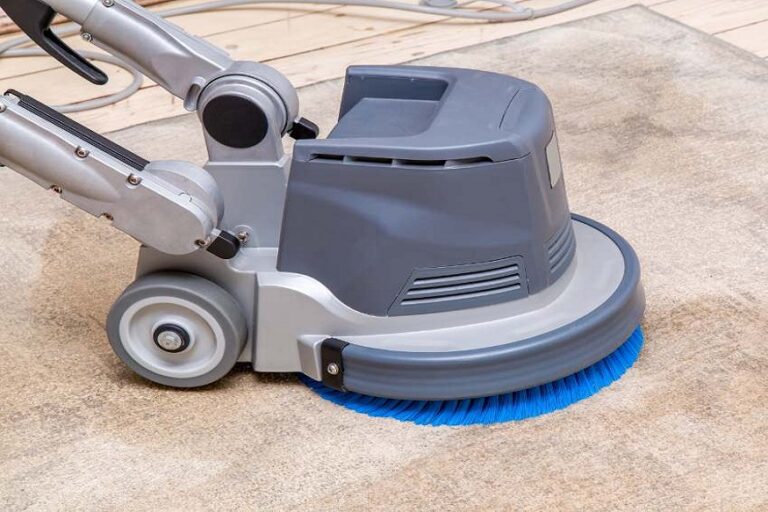Owning a property in Cambridge is both rewarding and demanding. The city is full of character, from period terraces and Victorian villas to modern flats near the station. Each property type has its quirks, and the changing seasons make regular upkeep essential. Landlords who plan ahead not only protect their investment but also give tenants the comfort and security they expect.
Cambridge’s climate is varied, with damp winters, crisp autumns, and long summer days that can all leave their mark on a home. A seasonal checklist ensures nothing is missed, helping to avoid emergencies that disrupt tenants and cost landlords more in the long term. From heating checks to garden care, tackling maintenance in stages throughout the year is the simplest and most effective way to keep a property in excellent shape.
Spring: Refresh and Repair
Spring brings an ideal opportunity to inspect a property after the harsher months. Cambridge winters can be wet, and damp conditions may leave roofs, walls, and drains in need of attention. Checking for missing roof tiles, cracks in masonry, and leaks in gutters is essential. Catching these early avoids costly repairs later and stops water damage spreading indoors. Boiler servicing should also be on the list, making sure heating and hot water systems remain reliable before tenants turn them off for the summer.
It’s also a good season to test safety equipment. Smoke alarms and carbon monoxide detectors should be checked, while windows and doors benefit from being inspected for security and draughts. Outdoor areas require attention too. Fences may have been damaged by strong winds, and lawns often need cutting back. Families and students alike value gardens, so tidying and repairing outdoor spaces is important. Many owners turn to professional support, such as property maintenance services for landlords Cambridge, to manage these seasonal demands.
Summer: Optimise Outdoor Spaces
Summer is often the busiest period for tenant turnover in Cambridge, particularly with the student population preparing for a new academic year. This makes it the right time to focus on presentation and kerb appeal. Cleaning windows, repainting exteriors, and sprucing up patios can make a lasting impression. Tenants arriving in September will view properties over the summer months, so ensuring outdoor spaces are inviting is a wise move.
The drier weather is also perfect for bigger projects. Roof repairs, insulation upgrades, and external decorating can be completed with minimal disruption. It’s also a chance to review plumbing, as leaks often go unnoticed until water usage increases. Servicing air conditioning or ventilation units ensures they work properly during hot spells. By investing in property care during the summer, landlords reduce the likelihood of emergency callouts once tenants have settled into their homes.
Autumn: Prepare for the Cold
Autumn is a transitional season where preparation makes all the difference. Cambridge is known for its tree-lined streets, which create charm but also lead to gutters blocked with fallen leaves. If these aren’t cleared, water backs up and seeps into walls, a common problem in older homes. Checking guttering and downpipes is one of the simplest yet most effective autumn tasks. Roof inspections are also vital, as winter storms can turn small defects into major leaks.
Inside the home, landlords should focus on heating efficiency. Boilers need servicing before the cold sets in, and radiators should be bled to ensure even heat. Draught-proofing around doors and windows helps keep tenants warm and energy bills lower. This is especially important with today’s emphasis on energy efficiency, as tenants are increasingly conscious of running costs. A well-prepared home makes life easier for tenants and reduces the risk of emergency calls during the first frosts.
Winter: Safety and Warmth
Winter is the toughest season for property maintenance. Cambridge can experience icy mornings, heavy rainfall, and occasionally snow, all of which put pressure on homes. Protecting pipes from freezing should be a priority. Lagging exposed pipes, particularly in lofts and external areas, prevents bursts that can cause expensive water damage. Tenants should also be advised to keep heating on at a low level if they go away over Christmas.
Safety checks are equally critical. Carbon monoxide alarms should be tested, and emergency exits kept clear. Older properties may struggle with condensation in winter, leading to mould. Ensuring ventilation is adequate helps protect both the building and the tenant’s health. Landlords who arrange an inspection in early December often prevent last-minute emergencies when contractors are busy. This proactive approach saves both stress and money during the festive season.
Year-Round Essentials
Beyond seasonal tasks, certain responsibilities remain constant throughout the year. Regular inspections are vital to catch minor issues before they escalate. Keeping clear records of these checks helps landlords demonstrate that they are meeting legal obligations, while also reassuring tenants that the property is properly managed. Good communication with tenants means they are more likely to report problems early, which avoids bigger complications.
Long-term upgrades also play a role in reducing seasonal pressures. Installing double glazing, improving insulation, or upgrading to energy-efficient boilers not only improves comfort but also adds value to the property. These investments reduce future repair costs and make homes more attractive to tenants. In a city where demand is high but expectations are also rising, well-maintained homes consistently perform better in the market.
Why a Seasonal Checklist Matters
Cambridge’s property market is competitive, with strong demand from professionals, students, and families alike. For landlords, staying ahead with a clear seasonal checklist ensures properties remain safe, efficient, and appealing. It’s not just about fixing problems but about planning ahead, so maintenance becomes routine rather than a crisis.
For homeowners, the same benefits apply. Regular seasonal care preserves the charm of period properties and protects newer builds against wear and tear. It saves money over time, creates peace of mind, and maintains property value. In a city where housing standards are closely watched, adopting a seasonal approach is one of the best ways to protect an investment and provide tenants with a home they truly appreciate.














+ There are no comments
Add yours